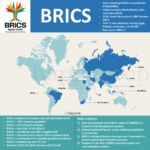Pronouns in English
Pronouns in English
Introduction
In English grammar, pronouns are essential because they make sentences shorter, clearer, and less repetitive. Imagine if we had to say:
“Ravi went to Ravi’s house, and Ravi took Ravi’s bag with Ravi.”
It sounds awkward, right? Instead, we can use pronouns:
“Ravi went to his house, and he took his bag with him.”
Here, the words his, he, and him are pronouns because they replace the noun “Ravi.” In this article, we will explore what pronouns are, their types, and how to use them correctly in sentences.
What is a Pronoun?
A pronoun is a word that replaces a noun in a sentence to avoid repetition.
Examples in Sentences:
- She is my best friend. (instead of “Aisha is my best friend.”)
- They are going to the park. (instead of “Ram and Shyam are going to the park.”)
- It is a beautiful day. (instead of “The weather is beautiful today.”)
Pronouns make sentences more concise and natural.
Types of Pronouns
Pronouns are classified into different types based on their functions
Personal Pronouns
Personal pronouns refer to specific people or things and are used as the subject or object of a sentence.
Person | Subject Pronouns (Do the action) | Object Pronouns (Receive the action) |
1st Person (Speaker) | I, We | Me, Us |
2nd Person (Listener) | You | You |
3rd Person (Others) | He, She, It, They | Him, Her, It, Them |
Sentence Examples:
- I love reading books. (Subject Pronoun)
- She gave the book to me. (Object Pronoun)
- They are coming to the party. (Subject Pronoun)
- The teacher called us. (Object Pronoun)
Possessive Pronouns
Possessive pronouns show ownership or possession.
Person | Possessive Adjectives (Before a noun) | Possessive Pronouns (Replace a noun) |
1st Person | My, Our | Mine, Ours |
2nd Person | Your | Yours |
3rd Person | His, Her, Its, Their | His, Hers, Theirs |
Sentence examples:
- This is my book. (Possessive Adjective)
- This book is mine. (Possessive Pronoun)
- That is their house. (Possessive Adjective)
- That house is theirs. (Possessive Pronoun)
Common Mistake: Never use an apostrophe in “its” when showing possession.
Correct: The cat licked its paw.
Incorrect: The cat licked it’s paw. (It’s means it is, not possession.)
Reflexive Pronouns
Reflexive pronouns are used when the subject and the object are the same person. They end in -self (singular) or -selves (plural).
Person | Reflexive Pronoun |
1st Person | Myself, Ourselves |
2nd Person | Yourself, Yourselves |
3rd Person | Himself, Herself, Itself, Themselves |
Sentence examples:
- I hurt myself while playing.
- She taught herself to play the guitar.
- We enjoyed ourselves at the party.
Common Mistake: Do not use reflexive pronouns unnecessarily.
Incorrect: Please contact myself if you need help.
Correct: Please contact me if you need help.
Demonstrative Pronouns
Demonstrative pronouns point to specific things. They help us indicate whether something is near or far.
Singular (One thing) | Plural (More than one) |
This (near) | These (near) |
That (far) | Those (far) |
Sentence examples :
- This is my pen. (Near)
- That is a beautiful house. (Far)
- These are my books. (Near)
- Those are my friends. (Far)
Interrogative Pronouns
Interrogative pronouns are used to ask questions.
Interrogative Pronouns List:
- Who – (Used for people, subject) → Who is your best friend?
- Whom – (Used for people, object) → Whom did you meet yesterday?
- What – (Used for things) → What is your favorite color
- Which – (Used for choice) → Which dress do you like
- Whose – (Shows possession) → Whose bag is this?
Common Mistake: Who vs. Whom
Correct: Who called you? (Subject)
Correct: To whom did you give the book? (Object)
Indefinite Pronouns
Indefinite pronouns refer to unspecified people or things.
Indefinite Pronouns List:
- For People: Someone, Somebody, Anyone, Anybody, No one, Nobody, Everyone, Everybody
- For Things: Something, Anything, Nothing, Everything
Sentence example:
- Someone is knocking at the door.
- Is there anything I can do to help
- Everybody enjoyed the party.
Common Mistake:
Incorrect: Everybody are happy.
Correct: Everybody is happy. (Indefinite pronouns take singular verbs.)
Reciprocal Pronouns
Reciprocal pronouns are used when two or more people perform the same action toward each other. There are only two reciprocal pronouns:
Reciprocal Pronouns List:
- Each other (Used for two people)
- One another (Used for more than two people)
Sentence example:
- Ravi and Ankit help each other with homework. (Two people)
- The team members congratulated one another after winning the match. (More than two people)
Common Mistake:
Incorrect: They helped each other in the competition.
Correct: They helped one another in the competition. (If more than two people)
Summary
Type | Purpose | Examples |
Personal Pronouns | Replace specific people or things | I, You, He, She, We, They, It |
Possessive Pronouns | Show ownership | Mine, Yours, His, Hers, Ours, Theirs |
Reflexive Pronouns | Refer back to the subject | Myself, Yourself, Ourselves |
Demonstrative Pronouns | Point to things | This, That, These, Those |
Interrogative Pronouns | Ask questions | Who, What, Which, Whom, Whose |
Indefinite Pronouns | Refer to unspecified things or people | Someone, Anything, Everybody |
Reciprocal Pronouns | Show mutual actions | Each other, One another |
Quick Links
Want to read some more articles?
-
 Shanghai Cooperation Organization (SCO): Origin, Members, Facts, etc for UPSC and other exams
Shanghai Cooperation Organization (SCO): Origin, Members, Facts, etc for UPSC and other exams -
 BRICS: Origin, members and others for UPSC, PSC & other exams
BRICS: Origin, members and others for UPSC, PSC & other exams -
 BIMSTEC for UPSC: Origin, Members & More
BIMSTEC for UPSC: Origin, Members & More -
 General Science for Competitive exams: UPSC, PSC, APFC, EO-AO, SSC, etc
General Science for Competitive exams: UPSC, PSC, APFC, EO-AO, SSC, etc -
 THE TRADE UNIONS ACT, 1926 for UPSC EPFO APFC/EO-AO, ALC, and Other exams
THE TRADE UNIONS ACT, 1926 for UPSC EPFO APFC/EO-AO, ALC, and Other exams -
 Understanding Macroenvironment: Marketing Environment in Principles of Marketing
Understanding Macroenvironment: Marketing Environment in Principles of Marketing -
 Understanding Microenvironment: Marketing Environment in Principles of Marketing
Understanding Microenvironment: Marketing Environment in Principles of Marketing -
Interjections in English
-
Conjunctions in English
Recruitment notifications update!
-
Recruitment 2025: Recruitment for Teaching Staff in The School of Planning and Architecture, New Delhi - Vacancy, Posts, Grade Pay, etc
-
Recruitment 2025: Vacancies in Inter-University Centre for Astronomy and Astrophysics (IUCAA)
-
Recruitment 2025: Recruitment on Deputation basis in National Anti Doping Agency (NADA)
-
Recruitment 2025: Various vacancies in Artificial Limbs Manufacturing Corporation of India (ALIMCO)
-
Recruitment 2025: Various vacancies in Land Ports Authority of India
Copyright© 2024 | All rights reserved | Made in India